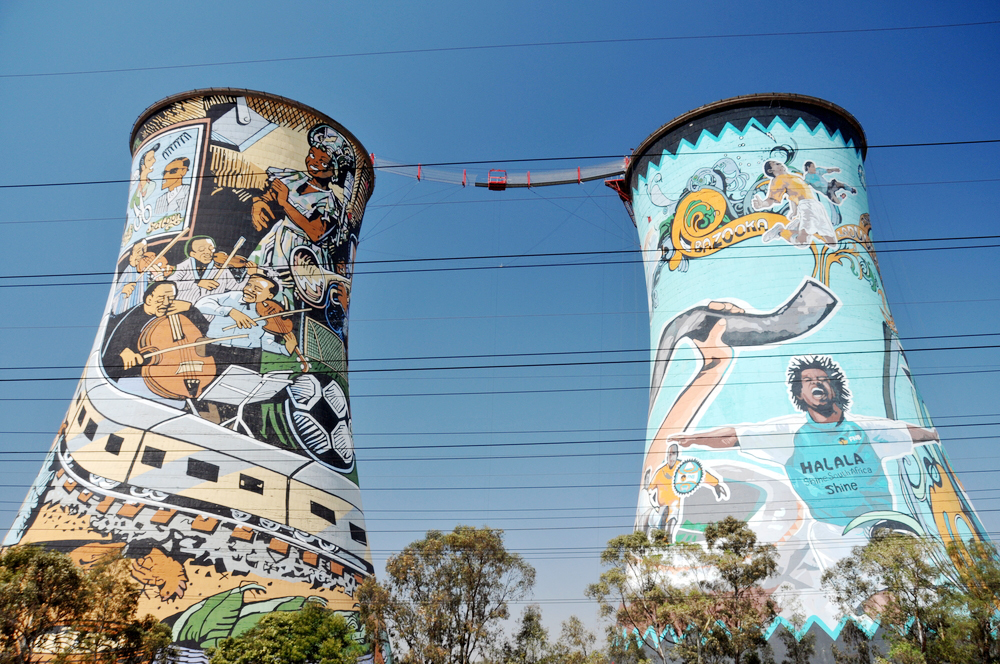Celebrating women’s contribution to tourism
Celebrating women’s contribution to tourism LondekileTourism has the potential to be a major driver of economic transformation, as a handful of Western Cape women are showing.
The Department of Tourism plans to increase the number of women in ownership and managment positions over the next few years.

“Tourism is a key driver of our economy, with a immense potential to fast track radical and economic transformation,” the Minister of Tourism Tokozile Xasa says.
It is important for the tourism sector to take the lead in transformation through opening up opportunites for women.
Minister Xasa says one of the biggest obstacles to the empowerment of women in the tourism sector is access to funding and managerial skills. This is why government entities have set up programmes like the Industrial Development Corporation’s Women Entrepreneurial Fund.
The Park Inn Hotel by Radisson in Newlands, Cape Town, is special. Opened in 2014, the three-star hotel was designed and built to make it accessible to disabled visitors. It also houses the offices of Deaf SA and a third of its staff is hearing impaired.
Just as important, Minister Xasa said on a recent visit, is that more than 50 per cent of its staff are women, with 10 in managerial positions.
The minister was speaking during a recent tour of women-owned and managed tourism establishments in the Western Cape.
Transforming the tourism sector
It is important, she said, that the role women play in the industry be recognised.
“With a workforce comprised largely of women operating at the lower levels of the value chain, it is incumbent on our sector to lead the process of gender diversity and transformation that will result in more women occupying executive positions,” she said. 
The minister also visited women-owned restaurants and a bed and breakfast in Khayelitsha. She had lunch with Abigail Mbalo-Mokoena at her 4Roomed eKasi Culture.
Mbalo-Mokoena, a trained dentist and contestant on MasterChef SA, dreamed of owning a restaurant at which she could serve local cuisine in a township setting.
Another woman entrepreneur, Nomalungelo Sotyingwe, owner of Lungi’s BnB, shared her experiences, saying it has taken seven years for her neighbours to become comfortable with the idea of a hotel in their midst. “I can tell you now that things are running smoothly and whenever there are visitors from overseas, they feel at home.”
In applauding the women entrepreneurs, the minister said that it was important to have diverse voices in the tourism industry.
She congratulated the women who were offering new and unique experiences to the sector.
“A diverse pool of leaders can only give rise to alternative ways of thinking, and unravel opportunities for growth and enhanced competitiveness for our industry.”
30 in 5 programme
The minister’s tour was part of government’s Women in Tourism programme which aims to increase the number of women in management positions in the tourism sector to 30 per cent over the next five years.
In March last year, the department launched the Executive Development Programme at the UNISA Graduate School of Business Leadership. The course is aimed at black female employees in the tourism sector who are employed at junior or middle management level.
Speaking at the Southern Africa Tourism Services Association Conference in Cape Town recently, the minister said government was committed to creating an enabling environment to grow the industry.
The tourism sector supports about 700 000 jobs and contributes about three per cent to GDP, but more can be done, she believes.
In the North West, the provincial government is holding a summit to discuss the role of women in the economy. Dynamic entrepreneurs are being brought together to discuss the challenges they face as business owners and employers.
The minister believes that plans like this will help South Africa to develop authentic cultural experiences for tourists.
Domestic tourism key to growth
While international tourists are visiting the country in growing numbers, local tourism needs to be encouraged as well. In Khayelitsha, Sotyingwe regrets the small number of locals who visit her BnB. “During the Cape Town Jazz Festival I had just two South Africans visit.”
This needs to change, the minister said. “Worldwide, it is now acknowledged that domestic tourism is a key contributor to the growth of the tourism economy and provides a foundation for sustainable tourism growth and development, more specifically in times of global uncertainties.”
The department is in the middle of reviewing its Draft National Tourism Sector Strategy, a plan to make South Africa a top 20 tourist destination by 2020. The strategy is based on five pillars – effective marketing, ease of access, unique experiences, destination management and the development of an inclusive sector.
The department and the Tourism Charter Council will be hosting a Transformation Summit next month to exchange ideas on strategies and investment opportunities to improve the access of black entrepreneurs, particularly women, to the tourism value chain.